|
Books Should Be Free Loyal Books Free Public Domain Audiobooks & eBook Downloads |
|
|
Books Should Be Free Loyal Books Free Public Domain Audiobooks & eBook Downloads |
|
Science |
|---|
|
Book type:
Sort by:
View by:
|
By: Charles L. Fontenay | |
|---|---|
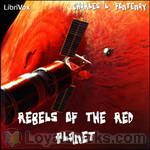 Rebels of the Red Planet
Rebels of the Red Planet
Dark Kensington had been dead for twenty-five years. It was a fact; everyone knew it. Then suddenly he reappeared, youthful, brilliant, ready to take over the Phoenix, the rebel group that worked to overthrow the tyranny that gripped the settlers on Mars.The Phoenix had been destroyed not once, not twice, but three times! But this time the resurrected Dark had new plans, plans which involved dangerous experiments in mutation and psionics.And now the rebels realized they were in double jeopardy.... | |
By: Charles McRae | |
|---|---|
 Fathers of Biology
Fathers of Biology
An account given of the lives of five great naturalists (Hippocrates, Aristotle, Galen, Vesalius and Harvey) will not be found devoid of interest. The work of each one of them marked a definite advance in the science of Biology. There is often among students of anatomy and physiology a tendency to imagine that the facts with which they are now being made familiar have all been established by recent observation and experiment. But even the slight knowledge of the history of Biology, which may be obtained from a perusal of this little book, will show that, so far from such being the case, this branch of science is of venerable antiquity... | |
By: Charles Morris (1833-1922) | |
|---|---|
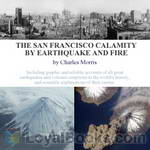 The San Francisco Calamity by Earthquake and Fire
The San Francisco Calamity by Earthquake and Fire
The first half of this book describes the devastating earthquake that hit San Francisco in 1906, and the subsequent destruction caused by fire. Various eyewitnesses and victims give their account on the tragedy. In the second half, a number of different other earthquakes and volcanic eruptions are retold, like the eruption of the Vesuvius that destroyed Pompeij or the explosion of the Krakatoa, together with scientific explanations for the causes of earthquakes and the eruption of volcanos. | |
 Chronicles of America Volume 09 - Colonial Folkways
Chronicles of America Volume 09 - Colonial Folkways
This work according to the subtitle is "a chronicle of American life in the reign of the Georges." It describes land, locales, houses, habits, diversions, learning, religion, labor, and travel. | |
By: Charles Nordmann (1881-1940) | |
|---|---|
 Einstein and the Universe
Einstein and the Universe
"M. Nordmann has presented Einstein’s principle in words which lift the average reader over many of the difficulties he must encounter in trying to take it in. Remembering Goethe’s maxim that he who would accomplish anything must limit himself, he has not aimed at covering the full field to which Einstein’s teaching is directed. But he succeeds in making many abstruse things intelligible to the layman." - Summary by from the Preface by Viscount Haldane Giving significant credit to Henri... | |
By: Charles R. Gibson (1870-1931) | |
|---|---|
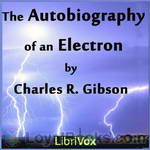 The Autobiography of an Electron
The Autobiography of an Electron
"While many scientific men now understand our place in the universe, we electrons are anxious that every person should know the very important part which we play in the workaday world. It was for this reason that my fellow-electrons urged me to write my own biography. I am pleased to say that my relationship with the scribe who has put down my story in the following pages has been of the most friendly description. I have allowed him to place what he calls "The Scribe's Note" at the beginning of each chapter, but it will be understood clearly that these are merely convenient embellishments, and that I am responsible for the story of my own experiences." (Introduction adapted from the text) | |
 Romance of Modern Photography
Romance of Modern Photography
It is not the author's purpose in the present volume to give any instruction in the practice of photography. There are many works dealing with the practical side of the subject. His object is to tell the romantic story of the discovery of this wonderful art, and the steps by which its range has been extended until it can achieve results which only a few years ago would have been thought impossible. A glance at the list of chapters will show what a wide field photography now covers, and what service it renders to man, both in his everyday life and in his most subtle scientific researches. - Summary by The Author | |
 Romance of Modern Electricity
Romance of Modern Electricity
From the series, The Library of Romance, this book introduces the reader to the modern concepts of electricity. The author discusses how man came to know about electricity, and how it powers the world of 1910. | |
By: Charles Sternberg (1850-1943) | |
|---|---|
 Life of a Fossil Hunter
Life of a Fossil Hunter
Charles Sternberg was an American fossil collector and paleontologist. He was active in both fields from 1876 to 1928, and collected fossils for private collectors as well as for international museums. This book is part travelogue, part paleontology, and part historical narrative of life on the open prairie. In it, Sternberg tells of his early interest in fossil hunting as a boy, and scientific expeditions from his first in 1876 to one for the Munich Museum in 1901. - Summary by Ava | |
By: Charles W. Diffin (1884-1966) | |
|---|---|
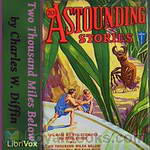 Two Thousand Miles Below
Two Thousand Miles Below
A science fiction novel that was originally produced in four parts in the publication: Astounding Stories in June, September, November 1932, January 1933. The main character is Dean Rawson, who plans on discovering a way of mining power from a dead volcano, but ends up discovering more than he bargained for. | |
 The Finding of Haldgren
The Finding of Haldgren
Chet Ballard answers the pinpoint of light that from the craggy desolation of the moon stabs out man's old call for help. | |
By: Charles W. Leadbeater (1854-1934) | |
|---|---|
 Vegetarianism and Occultism
Vegetarianism and Occultism
How does occultism regard vegetarianism? It regards it very favorably, and that for many reasons. These reasons may be divided into two classes: those which are ordinary and physical, and those which are occult or hidden. Let us see in detail why a vegetarian diet is emphatically the purest and the best. | |
By: Clarence Darrow (1857-1938) | |
|---|---|
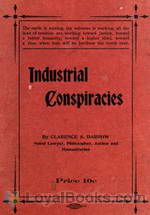 Industrial Conspiracies
Industrial Conspiracies
| |
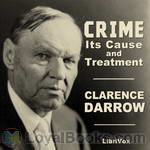 Crime: Its Cause and Treatment
Crime: Its Cause and Treatment
Clarence Darrow was an American lawyer. He remains notable for his wit and agnosticism, which marked him as one of the most famous American lawyers and civil libertarians.In this book, Darrow expands on his lifelong contention that psychological, physical, and environmental influences—not a conscious choice between right and wrong—control human behavior. To my ears (the reader's), the author has a rather simplistic behaviourist view of human behaviour, but he argues his position with wonderful clarity... | |
By: Clifford D. Simak (1904-1988) | |
|---|---|
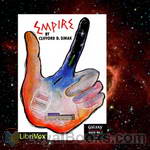 Empire
Empire
In a future time, the solar system is powered by one energy source, controlled by one huge organisation, which has plans to use this control to dominate the planets. Unknown to them, a couple of maverick scientists accidentally develop a completely new form of energy supply and threaten the corporation's monopoly. Naturally, the corporation can't allow this to happen... A stunning story about the manipulation of pure energy, climaxing in interstellar conflict. | |
By: Clifford Simak (1904-1988) | |
|---|---|
 Hellhounds of the Cosmos
Hellhounds of the Cosmos
From Astounding Stories of 1932. Earth is being attacked by horrible black monsters that appear from nowhere and destroy and kill everything and everyone in their paths. Nothing affects them, nothing stops them; they are impervious to all weapons. Earth is doomed. But there is one hope and it rests on the shoulders of 98 brave men. Can they do it? can they find a way of retaliating? Listen and find out. | |
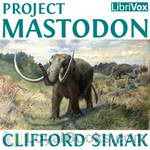 Project Mastodon
Project Mastodon
Clifford Simak deals with the implications of time travel in his own unique way in this story. What if a group of guys did it on their own, without any help from government or industry? On a shoestring,so to speak? Would anyone believe them? What would you do if you could go back 150,000 years to a time when mastodons and saber toothed tigers roamed North America? And what happens when they run out of money? All these questions are explored in the usual humorous, wry Simak way in this story. | |
By: Constantine Panunzio (1884-1964) | |
|---|---|
 Deportation Cases of 1919-1920
Deportation Cases of 1919-1920
"The study here presented embodies the findings of an investigation into the recent [1919-1920] deportations of persons deemed to be unlawfully in the country. . . Its purpose is to call public attention to practices that are inconsistent with the American tradition of justice and fair-play." | |
By: D. B. Casteel (1877-1958) | |
|---|---|
 Behavior of the Honey Bee in Pollen Collecting
Behavior of the Honey Bee in Pollen Collecting
The value of the honey bee in cross pollinating the flowers of fruit trees makes it desirable that exact information be available concerning the actions of the bee when gathering and manipulating the pollen. The results recorded in this manuscript are also of value as studies in the behavior of the bee and will prove interesting and valuable to the bee keeper. The work here recorded was done by Dr. Casteel during the summers of 1911 and 1912. | |
By: Dallas McCord Reynolds (1917-1983) | |
|---|---|
 Status Quo
Status Quo
Larry Woolford is a government agent, tasked with investigating subversive activity. He does everything an ambitious young man should do if he wants to succeed: wear the right clothes, listen to the right music, even drink vodka martinis. Then he stumbles across a conspiracy of Weirds plotting to overthow the entire existing social order. It's a race against time. Can he stop their fiendish plan, and keep America safe for shallow judgements based on status symbols? Status Quo was nominated for the 1962 Hugo Award for short fiction. | |
By: Dan McKenzie | |
|---|---|
 City of Din
City of Din
A treatise on the increasing loudness of modern life, including philosophical and scientific discussion of what noise is, how effects us physically, mentally, and socially in cities, on railways, at home, in workplaces, and on battlefields of war. The book concludes with some strong suggestions for protecting ourselves from noise as well as for lessening noise altogether. - Summary by Amelia Chesley | |
By: David Brewster (1781-1868) | |
|---|---|
 Martyrs of Science, or, the Lives of Galileo, Tycho Brahe, and Kepler
Martyrs of Science, or, the Lives of Galileo, Tycho Brahe, and Kepler
“The martyrs of Science” gives a brief biography of Galileo, Brahe and Kepler. These three men played a pivotal role in the scientific revolution during the early modern period. This book throws light upon their lives, their scientific achievements, adversities which they faced for their work and how they transformed the lives of the future generations forever. It also provides evidence which establishes that the work carried out by them are original irrespective of the claims by other men who tried in vain to rob them of their honor. The author highlights some of their fallacies which hindered their progress. | |
By: David Hilbert (1862-1943) | |
|---|---|
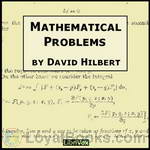 Mathematical Problems
Mathematical Problems
Lecture delivered before the International Congress of Mathematicians at Paris in 1900 and subsequently published in the Bulletin of the American Mathematical Society Vol. 8 (1902), 479-481. | |
By: David Lindsay (1876-1945) | |
|---|---|
 A Voyage to Arcturus
A Voyage to Arcturus
A Voyage to Arcturus is a novel by Scottish writer David Lindsay, first published in 1920. It combines fantasy, philosophy, and science fiction in an exploration of the nature of good and evil and their relationship with existence. It has been described by critic and philosopher Colin Wilson as the "greatest novel of the twentieth century" and was a central influence on C. S. Lewis's Space Trilogy. | |
By: David Marshall Brooks (1902-1994) | |
|---|---|
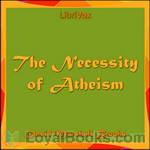 The Necessity of Atheism
The Necessity of Atheism
Plain speaking is necessary in any discussion of religion, for if the freethinker attacks the religious dogmas with hesitation, the orthodox believer assumes that it is with regret that the freethinker would remove the crutch that supports the orthodox. And all religious beliefs are "crutches" hindering the free locomotive efforts of an advancing humanity. There are no problems related to human progress and happiness in this age which any theology can solve, and which the teachings of freethought cannot do better and without the aid of encumbrances. | |
By: David Todd (1855-1939) | |
|---|---|
 Astronomy: The Science of the Heavenly Bodies
Astronomy: The Science of the Heavenly Bodies
The progress of astronomy from age to age has been far from uniform—rather by leaps and bounds: from the earliest epoch when man's planet earth was the center about which the stupendous cosmos wheeled, for whom it was created, and for whose edification it was maintained—down to the modern age whose discoveries have ascertained that even our stellar universe, the vast region of the solar domain, is but one of the thousands of island universes that tenant the inconceivable immensities of space... | |
By: Dhan Gopal Mukerji (1890-1936) | |
|---|---|
 Kari the Elephant
Kari the Elephant
The adventures of an Indian boy and his beloved elephant. Born near Calcutta, Mukerji won the Newbury Medal for children's fiction. | |
By: Donald Keyhoe (1897-1988) | |
|---|---|
 Flying Saucers are Real
Flying Saucers are Real
The Flying Saucers are Real is a book that investigates numerous encounters between USAF fighters, personnel, and other aircraft, and UFOs between 1947 and 1950. Keyhoe contended that the Air Force was actively investigating these cases of close encounter, with a policy of concealing their existence from the public until 1949. He stated that this policy was then replaced by one of cautious, progressive revelation. Keyhoe further stated that Earth had been visited by extraterrestrials for two centuries, with the frequency of these visits increasing sharply after the first atomic weapon test in 1945... | |
By: Donald Wandrei (1908-1987) | |
|---|---|
 Raiders of the Universes
Raiders of the Universes
It was the 34th century and all five of the Federation of Planets around Sol were buzzing with their usual activity when the Raiders appeared. They were indeed Raiders of Universes because they had ravaged many systems before reaching Earth and showed no signs of slowing down in the least. Their weapons were invincible, their greed merciless and their natures completely alien. Indeed 'they' were from another dimension entirely. Eating up entire solar systems and planets, they slowed down just a bit when intelligent life was found on Earth... | |
By: Dorothy Mills | |
|---|---|
 Book of the Ancient Greeks
Book of the Ancient Greeks
An Introduction to the History and Civilization of Greece from the Coming of the Greeks to the Conquest of Corinth by Rome in 146 B.C. The spirit of a nation is expressed and its history is recorded in three ways: in its political history, in its literature and in its art. The aim of this book has been to use such parts of the political history of the Greeks, of their literature and of their art as seem to have been the outward and visible signs of the spirit that inspired them. - Summary from... | |
By: Dr. Albert Philip Sy (1872-?) | |
|---|---|
 Food Values
Food Values
A short pamphlet from WWI, a sequel of sorts to "Food Preparedness." It first describes basic nutrition and things to consider when choosing what foods to eat, then lists various foods and their amount of calories, carbohydrates, fats, proteins, water, and "ash". This was written before much was known about fat soluble vitamins or saturated vs. unsaturated fats. | |
By: Dr. Benjamin Rush (1746-1813) | |
|---|---|
 Inquiry into the Effects of Ardent Spirits upon the Human Body and Mind, with an Account of the Means of Preventing, and of the Remedies for Curing Them
Inquiry into the Effects of Ardent Spirits upon the Human Body and Mind, with an Account of the Means of Preventing, and of the Remedies for Curing Them
Written when the United States extended only to the Mississippi River, by one of the signers of the Declaration of Independence, this short work explores the physical, social, and mental effects of distilled liquors; the classes of people prone to intoxication by them; suggested drinks to use instead of them; and remedies for intoxication and for their habitual use. He takes a medical view of alcoholism, exploring the physical causes rather than blaming moral failure as the cause. Alcoholic drinks that are not distilled are viewed as wholesome drinks, and opium is suggested for pain as being without bad effects or addictive qualities. | |